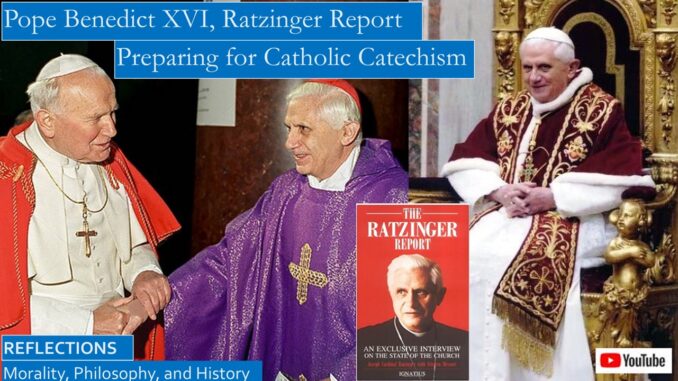
Why should we study the Ratzinger Report, which document a series of interviews with Cardinal Ratzinger, the future Pope Benedict XVI?
In the interviews Cardinal Ratzinger discusses the challenges facing the post-Vatican II Church. What can all Christians learn by reflecting on the Ratzinger Report?
Should we view Cardinal Ratzinger as the Rottweiler of the Catholic Church, a conservative defending the faith, or were all Vatican II popes actually progressive popes?
Do the Vatican II decrees abandon or reaffirm the decrees issued by the Council of Trent?
Script for this video, with more Amazon book links: https://www.slideshare.net/BruceStrom1/pope-benedict-xvi-ratzinger-report-leading-up-to-the-catholic-catechism
YouTube video: https://youtu.be/dTpbczGCAto
Who is going to influence whom? Will the Church influence the culture, or will the culture influence the Church?
The concerns discussed in the Ratzinger Report are both relevant to their time and also timeless.
CATHOLIC CATECHISM
Twenty years after Vatican II the Catholic Church seemed like a boat adrift without a rudder. Cardinal Ratzinger, who would later be ordained Pope Benedict, expressed his concerns and frustrations with the lack of direction in the Church and the misconceptions of Vatican II in interviews with Vittorio Messori, an Italian journalist, who would publish them in the Ratzinger Report.
Ratzinger discusses the frustration of many in the hierarchy of the Church on how so few of the faithful, both critics and champions of Vatican II, actually read and understood the decrees of the Council. Pope John Paul II and Cardinal Ratzinger saw this a lack of catechesis, so shortly after the 1985 publication of the Ratzinger Report, the Catholic Church started the process of drafting a new Catholic Catechism, soliciting input from over a dozen cardinals, bishops, and theologians.[1] Ratzinger compared the post-Vatican II Church to a “construction site where the blueprint had been lost but everyone continues to build according to his taste.”
Cardinal Ratzinger emphasizes, “these texts” in the Catechism “convey the wealth and the beauty of the faith. We took care to maintain a balance between witnesses from East and West to truly underline the truly catholic character of the catechism.” Like Vatican II, the Catechism strives to present the Catholic teachings and tradition to the world, not just Catholics, and since they balance the teachings of the Eastern and Western Church Fathers, and since the sources are quoted and footnoted, not only can Catholics learn about Catholicism through the Catechism, the Orthodox can learn about Orthodoxy through the Catechism as well, and all Christians can go back to the original sources of Christian tradition, from Scripture and the early first centuries of patristic teaching through the ancient, medieval, and more modern saints.[2]
Cardinal Ratzinger told of a note he once received from Hans Balthasar which read, “Do not presuppose the faith but propose it.” As Ratzinger teaches, “Faith is not maintained automatically,” faith is never finished, faith can never be taken for granted. “The life of faith has to be constantly renewed.” Genuine faith does not collect dust like plastic flowers, rather faith is like the flowers of the field who bloom with brilliant colors that turn to face the joy and life of the sun.
Ratzinger continues, “Faith is not a merely intellectual, or merely volitional, or merely emotional activity- it is all of these together.” Faith is both I BELIEVE, a supremely personal faith, a faith that then transcends ourselves, this faith is also WE BELIEVE, we the Church, we the communion of saints, we the Church who worships God and experiences Christ through the sacraments, [3] as the Psalm sings, Taste and see that the Lord is good.[4]
Our favorite country song is, “You don’t Love God If you don’t love your neighbor,” and Cardinal Ratzinger agrees that both are central, and that each of these two-fold loves lead to the other.
https://www.youtube.com/watch?v=epArSqlMQ-E
St Augustine is my favorite Catholic saint because in every one of his major works he explicitly iterates the two-fold Love of God and neighbor. Cardinal Ratzinger pushes back on common slogans, “one of which that all that really matters to today is orthopraxis, or ‘right conduct,’ or love of neighbor. On the other hand, orthodoxy, that is, for ‘right belief,’ according to the true meaning of Scripture, which is read within the living tradition of the Church, occupies a second rank, when it is not downright alienating. This is a facile slogan because it is superficial. Does not” “orthopraxis, the love of neighbor, radically change with the manner and way orthodoxy is understood?”
Cardinal Ratzinger also insists we ask, “What is the right conduct through which the poor are to be effectively helped in a really Christian manner? Does not the decision for a right behavior presuppose a right thinking, does it not thereby itself refer to the necessity for a search for an orthodoxy?”
Ratzinger references the situation in the Third World and Latin America. When we were reflecting on Pope Francis’ Gaudete Et Exsultate encyclical, On the Call to Holiness in Today’s World, we noticed that the 2013 Latin American Conference Aparecida was prominently footnoted, and both Pope Benedict XVI and the future Pope Francis were the leading voices of this conference.
America magazine says this about the message of Aparecida:
“Do not forget the poor.” Aparecida used a typical expression of the theological and pastoral tradition of Latin America: “the preferential option for the poor and the marginalized.” Aparecida proclaims, “Today, we want to confirm and promote the option of preferential love for the poor. Concern for the poor is not optional.”
Pope Benedict summarizes a primary Latin American theological reflection: “the preferential option for the poor is implicit in the Christological faith in the God who became poor for us, to enrich us with his poverty.”
https://www.americamagazine.org/trail-aparecida
We want to highlight an observation that Cardinal Ratzinger made about what robbed the spirituality of a particular monastery, which is really a universal condition in the modern world. He commented “on how the ruin of the monastery began when it was declared that rising for the recitation of the prayers of the nocturnal office was ‘no longer practical.’” What replaced these prayers? The worldly habit of “television viewing well into the night.”[5]
The ruminations in the Ratzinger Report are a continuation of his thoughts in his Milestones Memoir, where he also discusses the problems of the historical critical method of biblical interpretation, and his memoirs end with his appointment as archbishop sometime after the Council.
REDISCOVERING THE SECOND VATICAN COUNCIL
In preparation for the Second Vatican Council, the officials in the Curia and many others in the episcopate had drafted schemata of the texts for the Council to consider. Formerly repressed reformers such as Yves Congar and Henri de Lubac were part of this committee on the insistence of the pope, but they had little influence on the initial drafts.
Cardinal Ratzinger comments that Pope John XXIII had expected that the Second Vatican Council would quickly pass many of these documents, but he also credited the Holy Spirit for the inspiration for calling the council in his speech opening the sessions. The Holy Spirit likewise inspired the Council Fathers, they rejected these drafts of the decrees “as too theoretical, too textbook-like and insufficiently pastoral,” and not in line with the spirit of the Council as proclaimed by Pope John XIXIII in his speech invoking the Council.
But Ratzinger adds that none of the changed “texts aimed to change doctrine,” “but rather sought to synthesize, clarify, and develop” these texts. Yves Congar and Henri de Lubac and many other theologians, including Ratzinger himself, were influential in drafting these revised decrees of Vatican II.
Ratzinger said that “Vatican II was right in its desire for a revision of the relations between the Church and the world,” but that does not mean that there will never be conflicts. Our journalist then asked Ratzinger if the Church would revert back to its prior opposition to the world, to which Ratzinger responded, “It is not Christians who oppose the world, but rather the world which rejects the proclamation of the truth about God;” “the world which waxes indignant when sin and grace are called by their names.” The Church must have the courage and “capacity to oppose many of the trends of the surrounding culture” that distract us from the two-fold Love of God and neighbor.
Cardinal Ratzinger comments that there are conservatives who think they can support the teachings of Trent and Vatican I and disdain Vatican II, and likewise there are liberals who think they can support the teachings of Vatican II and disdain Trent and Vatican I, but both of these extreme camps are equally mistaken. Ratzinger notes, “There are no leaps in this history,” “Vatican II did not want to change the faith, but to represent it in a more effective way.” The Trent and Vatican Church Councils are on a continuum, they are all part of the Catholic tradition and teachings, you cannot reject one and affirm the other, as Vatican II reaffirms the teachings of her preceding councils and quotes extensively from them.
Cardinal Ratzinger teaches us: “Every council that bears fruit must be followed by a wave of holiness. Thus, it was after Trent, and it achieved its aim of real reform for this reason. Salvation for the Church comes from within her,” not solely “from the decrees of the hierarchy. Whether Vatican II and its results will be considered as a luminous period of Church history will depend upon all the Catholics who are called to give it life. As Pope John Paul II said in his commemoration of Charles Borromeo in Milan, ‘the Church of today does not need any new reformers, the Church needs new saints.’”
Bishop Charles Borromeo is mentioned prominently in William O’Malley’s history, he made the decrees of the Council of Trent come alive in his diocese in Milan not by returning to the ethos of the High Middle Ages, but by “creating a modern form of the Church. Ratzinger states that Borromeo “teaches us how to live according to the traditional values of the Church in a new way.”[6]
CARDINAL RATZINGER’S REFLECTIONS ON THE COUNCIL
When asked about the dangers of the “modern forgetfulness or rejection of the Catholic concept of the Church,” Cardinal Ratzinger replies, “The gravest issue is the decline of the authentic concept of OBEDIENCE. Some see it not as a Christian virtue but a heritage of an authoritarian, dogmatic past,” which denies the beneficial role the Church hierarchy. “This rejects the concept of an authority willed by God,” not an authority derived from “the consensus of the majority.”
Cardinal Ratzinger continues, “The church is not a party, not an association, not a club. Her deep and permanent structure is not democratic but sacramental, consequently hierarchal,” based on the apostolic succession from the apostles of Jesus. “The Church’s authority is not based on the majority of votes; it is based on the authority of Christ Himself.”
Cardinal Ratzinger repeats one of the main themes in Yves Congar’s book that helped inspire the calling of the Second Vatican Council, True and False Reform: In past centuries, “saints reformed the Church in depth, not by working up plans for new structures, but by reforming themselves. What the Church needs in order to respond to the needs of man in every age is holiness, not management.”[7]
https://youtu.be/yYp7yFZqc3s and https://youtu.be/1xqY0kN1eKk and https://youtu.be/ALZozpbSrM4
Cardinal Ratzinger has some wise observations on the Sacrament of Penance, warning that “there are priests who tend to transform confession into a mere conversation, a kind of therapeutic self-analysis between two persons on the same level. This seems to be much more human, more personal and more adapted to modern man,” but the spiritual danger to this approach is that it can rob the sacrament of its mystery. Ratzinger teaches us that confession must retain “the sense of scandal thorough which a man can say to another man, ‘I absolve you from your sins,” drawing authority not “from consent of men, but directly from Christ.”
Motives always matter, Ratzinger concedes that many of the criticisms of the sacrament are valid, that often confession is all too often routine, “repetitious, external, and anonymous.” Indeed, two very necessary sacraments, confession and marriage, are both problematic because they are both so necessary. Confession only works when the penitent truly confesses, and strives to improve their habits and attitudes, and are aided when clergy seek to encourage and facilitate a true confession.[8]
Regarding biblical interpretation, Cardinal Ratzinger discusses both the spiritual benefits and spiritual dangers of the historical-critical method, which was developed when Protestants broke the bond between the Bible and the Church. This method interprets the Bible based on a linguistic and archeological study of the original text using both linguistic and historical methods.
Cardinal Ratzinger warns about the dangers of studying the Bible solely as a literary work, “the Bible without the Church is no longer the powerfully effective Word of God, but an assemblage of various historical sources” “from the perspective of the present moment.” “An exegesis in which the Bible no longer lives and is understood within the living organism of the becomes archaeology: the dead bury their dead.” The danger, as Ratzinger sees it, is we risk seeing the Bible as some dead archeological artifact we dig up, not as a part of the living organism of the church. As Ratzinger notes, “the rule of faith, yesterday as today, is not based on the discoveries of biblical sources and layers of the Bible just as it is, but as it has been read in the Church since the time of Fathers until now.”
In his later 1994 Pontifical Biblical Commission Decree, Cardinal Ratzinger emphasizes his preference for the patristic method of commentary, which studies the writings of the Church Fathers on the Scriptures, viewing the historical-critical method as a valuable secondary method of interpretation. To Ratzinger, Jesus is best approached with humility, on your knees, not as merely your ultimate personal friend.
Our video on this Decree has an expanded discussion of the historical-critical method.
Regarding the liturgy, Cardinal Ratzinger teaches us, “The liturgy is not a show, a spectacle, requiring brilliant producers and talented actors. The life of the liturgy does not consist in pleasant surprises and attractive ideas but in solemn repetitions. It cannot be an expression of what is current and transitory, for it expresses the mystery of the Holy.” The Council demanded the faithful be active participants, but this can lead to the spiritual trap of assuming this can only take the form of activities like “speaking, singing, preaching, reading, and shaking hands,” but also important is silent, contemplative participation, “for silence facilitates a really deep, personal participation, allowing us to listen inwardly to the Lord’s word.”[9]
Cardinal Ratzinger ends his chapter on Danger Signs with these warnings that the “the Christian would be remiss toward his brethren if he did not proclaim:
- The Christ who first and foremost brings redemption from sin;
- The reality of the alienation from God of the Fall and, at the same time, the reality of the grace that redeems us, that liberates us;
- That to restore us to our original sinless nature, outside help is necessary;
- That the insistence of self-realization and self-salvation does not lead to redemption but to destruction;
- That in order to be saved, we must abandon ourselves to Love.”[10]
CARDINAL RATZINGER REFLECTS ON MORALS
As Cardinal Ratzinger teaches, “man is like God, man is capable of love and truth.” “Moral doctrine begins with the yearning for happiness and love that the Creator has placed in each of our hearts.” “Love is the heart of morality. When we delve more deeply into this love, we meet Christ, the Incarnate Love of God.”
Many people are fine with Jesus and the Church as long as they do not tell them what to do, particularly not questioning their love life. In Cardinal Ratzinger’s words, “these new moral theologians, since we are ‘now adult and liberated,’ think we ought to seek other behavioral norms by ourselves.” This is like the nightmarish theme of the book of Judges, which has the most awful collection of stories in the Old Testament, testifying to a world where “all Israel did what was right in their own eyes.” As Ratzinger notes, “man continually desires only one thing: to be his own creator and his own master. But what awaits us at the end of this road is certainly not Paradise.”
However, once we separate intimacy from marriage, and separate motherhood from marriage, then we are no longer seen as persons but rather as things, “nothing but a product planned according to one’s pleasures.” “Hence, it naturally follows that all forms of sexual gratification are transformed in the ‘rights’ of the individual,” which would include rights to practice homosexuality and to abort unwanted babies, and probably polygamy and polyamory as well.
Cardinal Ratzinger views permissiveness as a grave crisis facing the church. He observes, “The issue is the rupture between sexuality and marriage. Separated from motherhood, sex has remained without a locus and has lost its point of reference: it is a kind of drifting mine, a problem and at the same time an omnipresent power.”
This causes another rupture, “After sexuality and motherhood were separated, sexuality was also separated from procreation.” Then the advances of medicine and artificial insemination permitted another rupture, “procreation without sexuality.” [11]
MISSIONARIES: PROCLAIMNG CHRIST AGAIN
Cardinal Ratzinger commented on the status of missions in Africa, noting that though Vatican II introduced necessary changes in its affirmation of religious liberty, no longer treating faith communities in Africa and Asia like colonies, granting local church leaders autonomy, that the effect of this decree and the broader decree on ecumenism did lead to a lessening of missionary zeal. Cardinal Ratzinger observes that “hand in hand with the weakening of the necessity of baptism, went the overemphasis on the values of the non-Christian religions, which many theologians saw not as extraordinary paths of salvation but precisely ordinary ones.”
Ratzinger goes on to observe the slippery path of relativism many slide down: “Many begin to wonder, Why should we disturb non-Christians, urging them to accept baptism and faith in Christ, if their religion is their way to salvation in their culture, in their part of the world?” Ratzinger teaches that we must guide those who are not saved to the knowledge of the truth, “God our Savior desires that all men are to be saved to come to the knowledge that there is one God, and there is one mediator between God and man, and that is the man Christ Jesus, who gave Himself as a ransom for many.” (Quoting 1 Timothy 2:4-7) [12]
Ratzinger pointed out that the original Jewish apostles who preached the Gospel to the Greeks, they too were bringing in the Good News from “the outside.” He observes that the Nazis in Germany were well aware of the foreign nature of Christianity, which is why they tried to obliterate it.
Perhaps the analogy St Augustine gave applies, that maybe you can attain salvation through a round-about path through the fields and up and down the mountains and valleys, but salvation is more assured if you instead take the straight and narrow path shown in the Gospels.
CONCLUSION
Why was Pope Benedict XVI seen by some as the Rottweiler of the Catholic Church? He did silence some liberal theologians when their views diverged too drastically from the official Catholic position. Perhaps Pope Benedict XVI saw himself as the penultimate university theology professor, where the Catholic Church is his giant classroom, where all the faithful are his students, and his job is to correct his students’ incorrect notions on the Catholic faith. Did he go too far at times?
Let us conclude with these teachings of Cardinal Ratzinger. “More than ever before the Lord today has made us conscious of the fact the He alone can save His Church. The Church belongs to Christ, and she depends on Him to care for her. We are called upon to work with all our might, without anxiety and with the composure of one who knows that he is a useless servant even when he has done his full duty.”[13]
Ratzinger says he has “always tried to remain true to Vatican II, to this TODAY of the Church, without any longing for a YESTERDAY irretrievably gone with the wind and without any impatient thrust toward a TOMORROW,” particular a tomorrow that includes “an imaginary Vatican III,” “that is not ours.”[14]
Ratzinger regrets that “the authentic reception of Vatican II has not yet begun, its documents were buried under a pile of superficial or frankly inexact publications. The reading of the LETTER of the documents will enable us to discover their true SPIRIT.”[15] Which is exactly why, in this channel, we like to quote extensively from the sources, so you learn more about them and less about our interpretations.
DISCUSSION OF THE SOURCES
We always find Joseph Ratzinger’s books to be very readable, and although he was the one being interviewed in the Ratzinger Report, he was quoted so extensively that he really was a co-author.
George Weigel’s biography of Pope Benedict XVI includes a history of the Ratzinger Report. To prepare for the Catechism, the Extraordinary Synod of Bishops was called in Rome to get the input on how the council decrees were being implemented. The Ratzinger Report was issued, it was an immediate sensation, to the degree that one Cardinal, at a press conference, declared, “This is not a synod about that book, it’s a synod about the Council!”
Cardinal Ratzinger allowed the Synod Fathers to discuss two questions publicly, whether the Vatican II decrees were misinterpreted, and whether Catholicism was drifting into a type of liberal Protestantism.
There were many trends that were worrying the Synod Fathers, which included:
- The loss of a sense of reverence and awe of the Church and its Liturgy, where “many thought of the Church as a party or a club rather than as a distinctive community of faith and charity formed by the sacraments.”
- “A severe decline in the practice of penance, or confession, which had too often devolved into another form of therapy.”
- “The Church had lost a sense of the Cross,” “the idea of redemptive suffering found little resonance” in the secular west, which was “tone-deaf to the Church’s appeal for a genuine dialogue.”[16]
I only noticed one sentence in the Ratzinger Report that mentioned abortion, in 1985 it was not a major issue, and it does not mention the clerical sex scandal that has since nearly engulfed the Church.
We also used Cardinal Ratzinger’s book on Gospel, Catechesis, and Catechism as a source.
We also have a book review video on our sources for our videos on the history and decrees of Vatican II.
[1] https://en.wikipedia.org/wiki/Catechism_of_the_Catholic_Church
[2] Joseph Cardinal Ratzinger, Gospel, Catechesis, Catechism, Sidelights on the Catechism of the Catholic Church, What Can We Expect From a Catechism? (San Francisco: Ignatius Press, 1994), pp. 12-20.
[3] Joseph Cardinal Ratzinger, Gospel, Catechesis, Catechism, On the Meaning of Faith, pp. 23-28.
[4] https://www.biblegateway.com/passage/?search=Psalm+34%3A8&version=RSVCE
[5] Cardinal Ratzinger, The Ratzinger Report, A Spirituality For Today, p. 115.
[6] Cardinal Ratzinger, The Ratzinger Report, A Council to be Rediscovered, (San Francisco: Ignatius Press, 1994), pp. 27-44.
[7] Cardinal Ratzinger, The Ratzinger Report, At the Roots of the Crisis: The Idea of the Church, pp. 45-53.
[8] Cardinal Ratzinger, The Ratzinger Report, Among Priests and Bishops, pp. 56-57.
[9] Cardinal Ratzinger, The Ratzinger Report, Liturgy: Between Old and New, pp. 126-127.
[10] Cardinal Ratzinger, The Ratzinger Report, Danger Signs, pp. 74-81.
[11] Cardinal Ratzinger, The Ratzinger Report, The Drama of Morality, pp. 83-91.
[12] Cardinal Ratzinger, The Ratzinger Report, Proclaiming Christ Again, pp. 191-197.
[13] Cardinal Ratzinger, The Ratzinger Report, An Unusual Encounter, p. 14.
[14] Cardinal Ratzinger, The Ratzinger Report, An Unusual Encounter, p. 19.
[15] Cardinal Ratzinger, The Ratzinger Report, A Council to be Rediscovered, p. 40.
[16] George Weigel, God’s Choice, Pope Benedict XVI and the Future of the Catholic Church (New York: HarperCollins Publishers, 2005), pp. 197-199.

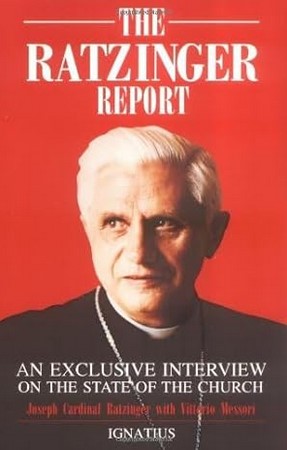
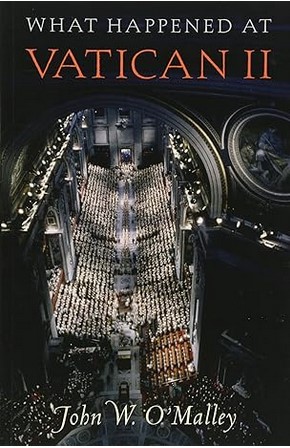
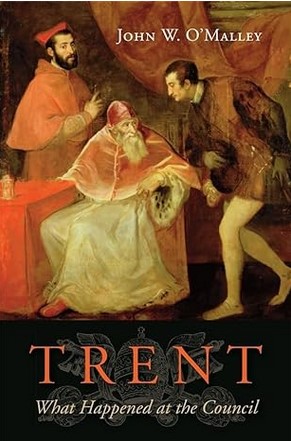
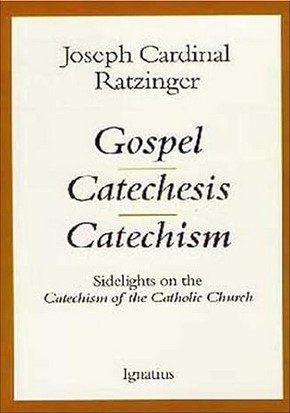
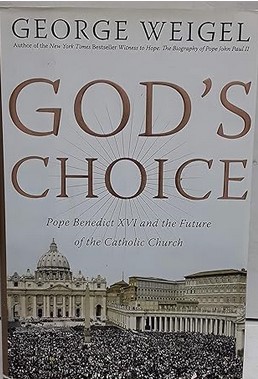
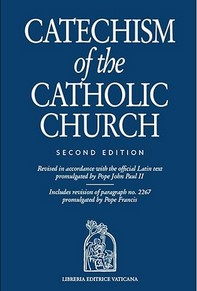
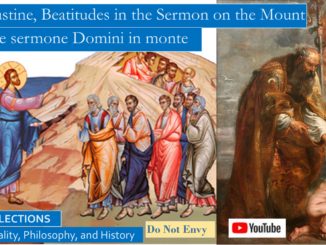
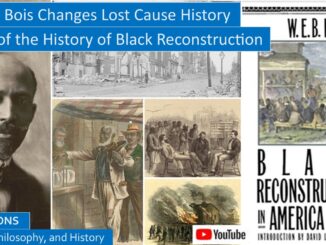
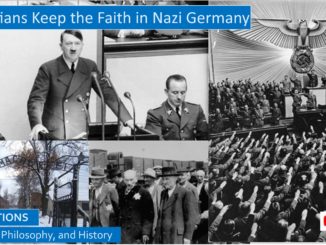
Be the first to comment